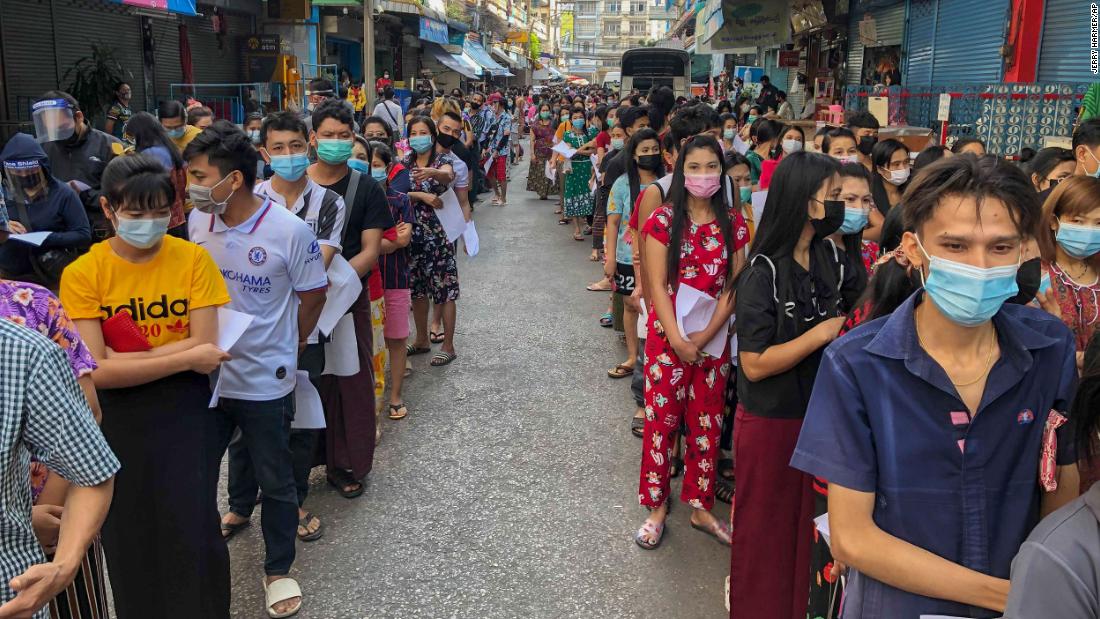
The outbreak started in a shrimp market in Samut Sakhon, a province southwest of Bangkok and a center of the fishing industry where thousands of migrant workers live.
“Today is just the first phase,” Kiattiphum Wongrajit, the permanent secretary of the ministry, told a news conference. “Further results will show many more infections.”
He said up to 40,000 people would be tested in Samut Sakhon and nearby counties, with more than 10,000 tests due by Wednesday.
Migrant workers, mainly from Myanmar, lined up for tests on Sunday, along with some Thais. Most of the cases identified so far have been asymptomatic, health officials said.
Barbed wire lined the market on Sunday when authorities in Bangkok ordered all schools in three districts in the capital bordering Samut Sakhon, 45 kilometers by road, to be closed until January 4.
The province will remain under lockdown and nightly curfews until Jan. 3, and Kiattiphum said the ministry expects to get the situation under control within two to four weeks.
‘We must break the epidemic cycle’
Prime Minister Prayuth Chan-ocha posted on his Facebook account: “We will have to break the epidemic cycle quickly. We already have experience in tackling it.”
Bangkok authorities also called on people to take preventive measures by avoiding gatherings, while entertainment venues and restaurants should respect social distance.
Organizers of New Year’s celebrations were told to obtain official permission to continue, while companies were urged to let staff work from home if possible.
Neighboring Cambodia has now imposed stricter requirements on people entering the country from Thailand.
Somsak Paneetatyasai, chairman of the Thai Shrimp Association, said the outbreak was bad news for shrimp exports, 30% of which comes from Samut Sakhon. Thailand is one of the top 10 shrimp exporters in the world.
The rise in coronavirus cases comes as Thailand tries to revive a pandemic-ravaged tourism industry. On Thursday, Thailand relaxed its restrictions to allow more foreign tourists to return.
Additional reporting by CNNs Kocha Olarn and Nectar Gan.
